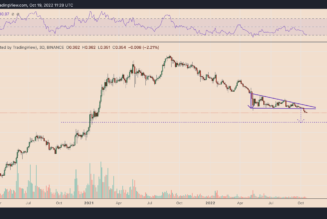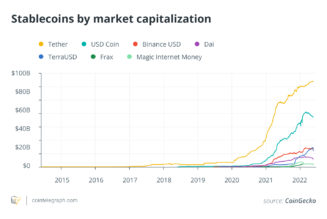
Malm, the activist in question, told POLITICO that while he stands by his book, which advocates sabotaging energy infrastructure, he is deeply troubled to be associated with terrorism.
Mike German, a former FBI agent who focused on counterterrorism, called the document troubling.
“Law enforcement fusion centers shouldn’t be writing book reviews and shouldn’t mention a book if it isn’t specifically tied to some sort of criminal act,” he told POLITICO.
‘Of course it’s an incitement to action’
The Fort Worth Intelligence Exchange is one of 80 intelligence-sharing fusion centers around the country. These entities were set up after the Sept. 11 terror attacks to help state and local law enforcement trade intelligence with their federal counterparts. Fusion centers like INTEX also share warnings with each other. They all get funding from the Department of Homeland Security, either directly or indirectly. The Fort Worth fusion center is housed in the Fort Worth Police Department.
In a three-page document dated Oct. 7, INTEX raised alarms about Malm, who released a book this January titled “How to Blow Up a Pipeline.” On a New Yorker podcast this September, Malm described working with other activists to covertly deflate the tires of thousands of SUVs.
“I am in favor of destroying machines, property, not harming people,” he told podcast interviewer and editor-in-chief David Remnick, according to a transcript. “That’s very important distinction there. And I think property can be destroyed in all manner ways, or it can be neutralized in a very gentle fashion as when we defeated the SUVs or in a more spectacular fashion, as in potentially blowing up a pipeline that’s under construction. That’s something that people have done.”
Malm’s ideas pose “a MEDIUM risk” to the Fort Worth community, the intelligence bulletin notes. It does not allege any specific link between Malm and the Fort Worth area. Texas produces more crude oil and natural gas than any other U.S. state, according to the Department of Energy.
“Malm encourages pipeline sabotage and property destruction and questions whether the climate movement would succeed with a stance of absolute non-violence,” the bulletin reads.
“While the content of the book and subsequent podcast are more nuanced than the titles suggest, Malm advocates for targeted sabotage to include the destruction or neutralization of equipment and property but is not in favor of harming people,” the bulletin continues.
Asked whether the bulletin’s description of “encouraging pipeline sabotage” was accurate, Malm told POLITICO by email: “Yes, certainly.”
“This is a conversation within the movement, and between it and the rest of society, that goes far beyond my own contributions,” Malm said. “Of course it’s an incitement to action, and of course that was my intent. But terrorism? Absolutely not,” Malm added, noting he implored any destruction “must not” harm human life.
A spokesperson for the Fort Worth Police Department told POLITICO that the bulletin does not claim Malm himself presents any danger.
“The situational awareness bulletin was created to information [sic] local law enforcement agencies of the content that was posted online and the potential for negative use of the content by its viewers,” a spokesperson said in a statement.
“The bulletin does not identify Malm himself as a threat and it specifically states that there are no credible threats at the time the bulletin was written. Products marked as Law Enforcement Sensitive (LES) and For Official Use Only (FOUO) such as this one are not intended to be distributed to the public or the media to avoid any potential for public panic or the release of any sensitive information,” the spokesperson added. “As with any situation awareness bulletin, the intent is merely to provide law enforcement with situational awareness.”
The threat of ‘eco-terrorism’
Russell Chisholm, co-chair of the Protect our Water Heritage Rights Coalition, a grassroots organization of anti-pipeline activists in the Mid-Atlantic, told POLITICO he’s ordered a copy of Malm’s book but that his group doesn’t back the tactics it describes.
He said law enforcement flagging Malm’s commentary, however, gets into “thought policing,” calling it “very dangerous territory.” Chisholm said he understood why the idea of physically destroying fossil fuel infrastructure could be attractive.
“Is this a method that is kind of our last recourse? And I think for a lot of activists, particularly young people, it probably is,” he said.
Those tactics concern law enforcement. The intelligence bulletin notes that analysts had no evidence of a “specific, credible threat” to the Fort Worth area, but added that “tactics and techniques used to impede and/or sabotage critical infrastructure and key resources (CIKR) remain a public safety concern.”
Though the bulletin does not accuse Malm of terrorism, it notes that the fusion center “reports on only those activities where potential use of rhetoric and/or propaganda could be used to incite acts of violence.”
Closer to the end of the bulletin, its unidentified author writes that the FBI “has defined eco-terrorism as the use or threatened use of violence of a criminal nature against innocent victims or property by an environmentally-oriented, subnational group for environmental-political reasons, or aimed at an audience beyond the target, often of a symbolic nature.”
The language in the bulletin echoes the Biden administration’s own National Strategy for Countering Domestic Terrorism, which says “domestic terrorists may be motivated to violence by single-issue ideologies” — including what it calls environmental extremism.
Despite warnings from the FBI and the Biden administration, there is scant data on environmentally motivated attacks on energy infrastructure. Analysis published by the Journal of Strategic Security counted five attacks or fewer per year from 2013 to 2018 as attributable to groups dubbed as eco-terrorists.
The intelligence bulletin cited some examples of attacks on energy infrastructure, including the Colonial Pipeline hack earlier this year, unsuccessful bombing attempts in 2011 and 2012, and bombings in Canada in 2008 and 2009.
In an email to POLITICO, Malm noted a string of 2017 incidents in which activists took oxy-acetylene torches to empty pipeline valves. He called the people responsible for that damage “great heroes.” The Justice Department took a different view; prosecutors persuaded a judge to use a tool called a terrorism enhancement to sentence one of the perpetrators to eight years in prison.
German, the former FBI agent, said intelligence bulletins like this one should focus on crimes, not books. He noted that the bulletin listed several examples of attacks on pipelines, including a ransomware attack on the Colonial Pipeline that appears to have no connection at all to environmental activism.
“It would have been far more useful to provide law enforcement officials receiving these intelligence bulletins with the details of those crimes and how they were carried out rather than a synopsis of a book that isn’t directly relevant to the attacks,” he said.
Donell Harvin, who ran Washington, D.C.’s fusion center, told POLITICO that the inclusion of Malm’s name in the bulletin was unusual.
“Generally, we would not cite an individual’s name in an unclassified intelligence document unless they had a demonstrative nexus to criminal or terrorist activity and we were alerting agencies to prevent an imminent attack. All the activities described in this report, while reprehensible, appear to be protected under the First Amendment.”
But Jamil Jaffer, head of the Antonin Scalia Law School at George Mason University and a former national security official at the Justice Department during the George W. Bush administration, praised the document.
“To me, this is well crafted, well thought out law enforcement intelligence analysis,” he said. “It’s actually one of the better crafted, more nuanced threat products I’ve seen out of a local fusion center.”
“There’s always this tension between threats and free speech,” he added. “It’s a hard line to negotiate. This strikes me as a carefully done approach.”
The New Yorker’s Remnick declined to comment on the intelligence report.
A fringe tactic among environmentalists
Malm’s work reflects the sense of desperation and urgency permeating the climate change movement as planet-heating pollution sets the world on a path toward the irreversible effects of a warmer planet. Malm added that property sabotage is far less severe than fossil fuel production and combustion that “certifiably kills people on a daily basis.”
But Malm’s views are more fringe than the bulk of national environmental organizations, which practice nonviolence and do not endorse property destruction. Most have focused on challenging permits in the courts and through regulatory filings along with protesting at pipeline construction sites and raising awareness.
One of the climate movement’s most successful efforts, Sierra Club’s Beyond Coal Campaign, has helped shutter 348 coal-fired power plants through litigation and mundane regulatory commission meetings.
“Oh God, no. No,” said Jane Kleeb, founder and president of Bold Alliance, a Nebraska group that organized Indigenous people, land owners and ranchers against the Keystone XL pipeline. “Nobody I’ve been in the pipeline fighting world for 12, 13 years now — not a single person that I’ve ever come in contact with at a tribal meeting, at events in D.C., wherever we were across the country, or here in Nebraska — has anybody ever thought blowing up or hampering a pipeline was a good idea. Not any tactic that we would ever use.”
Activists within Kleeb’s own network ended up on a similar intelligence bulletin back in 2012 for opposing Keystone XL, she said. But she said her group has never thought of sabotaging infrastructure, not least because doing so could possibly harm pipeline workers, first responders and others. Kleeb reserved her animus for the fossil fuel corporations, not their employees.
Such episodes are “isolated” and do not represent the broader environmental movement, said Jennifer Falcon, communications coordinator with the Indigenous Environmental Network, which has been on the frontlines protesting pipelines such as Keystone XL and Enbridge’s Line 3 in Minnesota.
“The escalating climate catastrophe is an existential threat to us all,” said Ryan Shapiro, the head of Property of the People, which obtained the document. “Yet, by targeting environmental activists as terrorists, U.S. intelligence and law enforcement continue their shameful history of protecting industry profits while the world burns.”
The U.S. — the world’s second-largest greenhouse gas polluter and the largest producer of oil and gas — has continued to build pipelines despite President Joe Biden’s goal of slashing greenhouse gas pollution in half this decade, relative to 2005 levels.
The Biden administration has defended pipeline construction and fossil fuel exports, noting a transition off fossil fuels does not mean stopping them immediately. Biden has vowed the U.S. power grid will not put carbon pollution into the air after 2035 and that the entire economy will achieve net-zero emissions by 2050.
Pipelines have become a focal point of environmental activism. Fights over fossil fuel infrastructure have ballooned into some of the Biden administration’s most fraught political battles, both domestically and internationally over spats with Canada on cross-border projects such as Line 3 in Minnesota and Line 5 under the Great Lakes in Michigan.
State legislatures have responded to burgeoning anti-pipeline protests with bills that advocates say protect energy providers or critical infrastructure but that environmentalists contend are designed to stifle dissent. So far, 16 states have passed laws with harsher criminal penalties for protesting near oil and gas pipelines or critical infrastructure, according to the International Center for Not-For-Profit Law.
But those protests show little sign of slowing. And Malm is encouraging activists to go much further. On the podcast, he brought up the construction of a new pipeline in Uganda and Tanzania.
“If people in that region were to attack the construction equipment, blow up the pipeline before it’s completed, I would be all in favor of that,” he said.
Remnick, the interviewer, then asked Malm if he planned to participate in such a move.
“Well, if I were planning things, I wouldn’t tell you or anyone else,” he replied.









